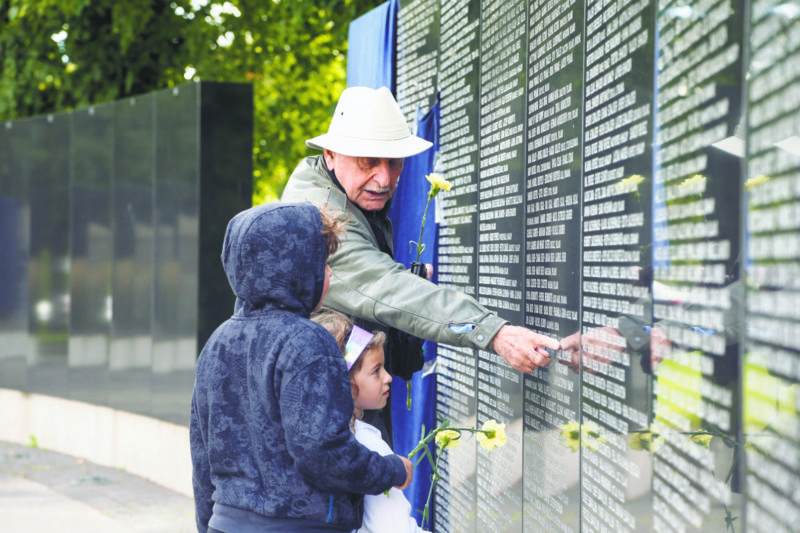A new poll suggests that a “comfortable” majority of Canadians believe young people today are less aware of the Holocaust and its lessons compared to the past.
Most of the survey’s 1,008 respondents agreed that teaching young people about discrimination and the Holocaust is important. Only a slight majority said young people are not taught enough about the Holocaust alone in school.
The analysis was conducted by Nanos Research on behalf of Friends of Simon Wiesenthal Center (FSWC) and released this month. Among its findings:
• More than nine in 10 of those surveyed said it is “important” (77 per cent) or “somewhat important” (17 per cent) to teach young people about discrimination, including racism and anti-Semitism. More than nine in 10 also agreed that it is “important” (63 per cent) or “somewhat important” (30 per cent) to teach young people about the Holocaust.
• A slight majority of those polled – 54 per cent – said young people today are not taught enough about the Holocaust, while 26 per cent said they are taught enough about the subject.
• Nearly two-thirds (64 per cent) of respondents said young people are less aware of the Holocaust and its lessons now compared to the past, while 18 per cent said young people are as aware.
• Nearly half (48 per cent) of respondents said young people today are not taught enough in schools about discrimination, including anti-Semitism, while 29 per cent said they are taught the right amount.
• Older respondents (64 per cent of those 55-plus) were more likely than younger ones (45 per cent of 18-34 year-olds) to say that young people are not taught enough about the Holocaust.
• Women (62 per cent) were more likely than men (46 per cent) to say young people today are not taught enough about the Holocaust.
• Respondents in the Prairie provinces (59 per cent) and Quebec (58 per cent) were most likely to say that young people do not receive enough education about the Holocaust.
• Those polled in the Atlantic provinces were most likely (97 per cent) to believe Holocaust education is “important” or “somewhat important,” while those in Quebec were least likely (88 per cent).
The survey results “demonstrate the continued value Canadians place on keeping the memory and lessons of the Holocaust alive while pointing to the enduring deficit with respect to Holocaust education that students receive in our school system,” said Avi Benlolo, president and CEO of FSWC, in a statement.
Dara Solomon, executive director of the Neuberger Holocaust Education Centre, said the expectation by the previous generation that this generation of students will know details of the Holocaust “might be unrealistic, given that history is taught with a lens to critical thinking rather than rote memorization of facts.”
At the Neuberger, “we believe there needs to be a balance between the particulars of the Holocaust and a deeper examination of why and how the Holocaust happened,” Solomon told The CJN. “We have seen that students are deeply engaged with Holocaust study when it intersects with their lives, focuses on contemporary relevancy and encourages reflection on how they can play a role in contributing to a peaceful, just and civil society.”
A poll done for FSWC by Nanos in 2018 showed that nearly eight in 10 respondents said there is a need to keep the memory of the Holocaust alive, but that more than one in 10 said Jews talk too much about the Holocaust and nearly one in six expressed views that could be anti-Semitic.
A 2019 survey found that more than half of all respondents and two-thirds of young people in this country did not know that six million Jews perished in the Holocaust, while a poll released in January revealed that 43 per cent of respondents could correctly identify six million as the number of Jewish Holocaust victims.
